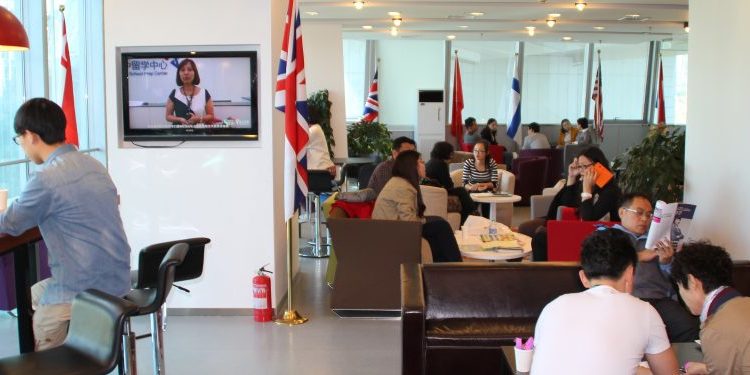China/Febrero de 2017/Fuente: The Pie News
RESUMEN: Hasta ahora, cada autoridad provincial ha establecido sus propios requisitos para las agencias educativas, como el capital social mínimo, que deben cumplir antes de que puedan ser licenciadas.Pero una directiva publicada por el Consejo de Estado el 21 de enero indica que ya no tendrán que obtener una licencia específica de la oficina provincial de educación, pero todavía necesitarán una licencia de negocio general para operar. Sin embargo, la directiva deja claro que el Ministerio de Educación no ve esto como una relajación de los reglamentos, sino que en su lugar se propone fortalecer la supervisión de los organismos de otras maneras.
Until now, each provincial authority has set its own requirements for education agencies, such as minimum registered capital, that they must fulfil before they can be licensed.
But a directive published by the State Council on January 21 states that they will no longer have to obtain a specific license from the provincial education bureau, but will still need a general business licence to operate.
However, the directive makes clear that the Ministry of Education doesn’t view this as a relaxation of the regulations, but instead intends to strengthen agency oversight in other ways.
The Ministry of Education and the State Administration of Industry and Commerce will be tasked with fortifying regulatory oversight of study abroad agencies, it says.
The two government bureaus will also create updated sample contracts for education agencies to use.
“After the examination and approval, the Ministry of Education should work with the SAIC to study and formulate the relevant model text of the contract, to strengthen the norms, guidance and services of study abroad agencies,” it states.
“Within the scope of responsibility, the Ministry of Education, SAIC and other departments need to enhance supervision [of education agencies]… and investigate and punish violations of the law,” it continues.
The scrapping of provincial licensing comes as good news for newcomers to the agency business, as the current regulations are seen to protect big-name brands that have been in operation for several years.
“More and more big companies will lose the control over the market to talented individuals with little investment or no investment at all,” predicted Shiny Wang, academic principal of Beijing Kaiwen Academy and director of college counselling at Tsinghua University High School.
However, there may be some challenges in their implementation, he added.
“If the newcomer independent counsellors… follow the transparent/fair approach of counselling and offer professional services with integrity, it will be really helpful for the students and colleges,” he said, but stressed that a statement of principles of good practice must be established to ensure a level playing field.
And with more agencies entering the market, it may be difficult for parents to discern which are reputable. “They will get lost in the sea of overwhelming counselling service companies; [it’s] hard to judge who will be professional and responsible,” noted Wang.
However, the custom of parents and students relying on word-of-mouth recommendations to find reputable agencies is unlikely to change no matter how many agencies operate in the market noted Peng Sang, president of the Beijing Overseas Study Service Association, a membership body of 150 education agencies.
The policy could also lead to a greater volume of fraudulent applications warned Wang: “It seems more unreliable and amazing applications will be thrown onto the desk of AOs [admission officers]. Confusion!”
International education institutions should therefore be more vigilant when it comes to screening students, advised Sang.
Rather than offering attractive commission to bring in high volumes of students, he said in future cooperation with agencies, educators “should take into account more our students’ individual characteristics, and that your admission standards are matched.”
Fuente: https://thepienews.com/news/china-provincial-licensing-education-agencies-abolished/







 Users Today : 252
Users Today : 252 Total Users : 35459847
Total Users : 35459847 Views Today : 424
Views Today : 424 Total views : 3418396
Total views : 3418396